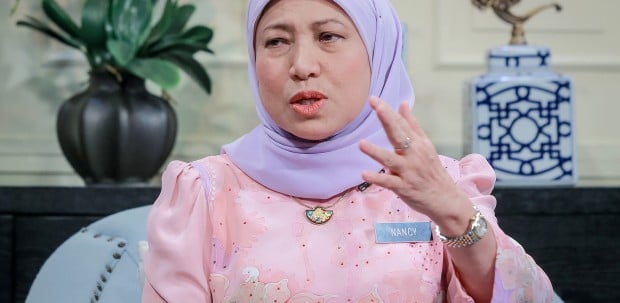Rashid Yusof | [email protected]
THIS newspaper went with a black-and-white cover on the death of the much-loved Sultan Azlan Shah who had served as Yang di-Pertuan Agong and lord president.
Last Saturday, page one was adorned with a picture of a smiling Tuanku Abdul Halim Mu'adzam Shah with the prime minister, ahead of the king's birthday.
The Kedah Sultanate dates back to 1136, making it, easily, one of the world's oldest reigning monarchy. The Kedah Royal House produced our first prime minister, Tunku Abdul Rahman, who died in 1990, aged 87, and was buried at the Royal Mausoleum, Langgar.
All the other royal households in the country are equally important institutions, steeped in tradition. By extension, such a history strengthens the collective self-esteem of a nation.
It is against such a venerated backdrop that commentators shall and have been dissecting the story emanating from the south.
At the outset, let's look at some basic pointers. One, this has not been billed as a crisis. Two, unlike the 1983 and 1993 constitutional crises, this does not actually pit the monarchy against the executive branch.
The Johor state government is the one tabling the Housing and Property Board Bill. Three, this news cycle could effectively end with additional explanations and tweaking to the bill. Conversely, this episode has quickly generated a gathering chorus of views by eminent persons, all amplifying the principles of constitutional monarchy.
Tun Musa Hitam told this newspaper on Saturday the matter could have ramifications beyond Johor and that if "the allegations are true, then it will affect the fundamental principles of constitutional monarchy and parliamentary democracy".
It would be hasty to suggest this has been a legacy of the 1993 crisis although hints and whispers canvassed by the media then have remained relevant.
In fact, events 21 years ago shall be dissected with a great deal more intensity as we await for more clarity on the Housing and Property Board Bill controversy.
For starters, excesses are frowned upon as demonstrated by the tone of media scrutiny in 1993. There is no dichotomy, really, on the part of the rakyat, in the disquiet over any form of excesses vis a vis the admiration for the monarchy.
The rakyat essentially looks upon royalty as enduring icons who would charmingly grace the realms of constitutional monarchy.
On the contrary, they shall prod, even berate and harass their elected representatives and members of the administration at the state and federal levels.
Politicians go to the hustings seeking to inspire the electorate on their visions on affordable housing, for instance. The electorate may applaud or otherwise, for there is accepted fuss in the rakyat-politician relations.
There must not be space for such expressions in the rakyat-royalty ties. That is the genesis of the nation preceding the present-day, post-Merdeka country.
As things stand, it is the duty of the state government of Johor to both defend the sanctity of the monarchy and, separately, to deliver on its promises to the electorate.




